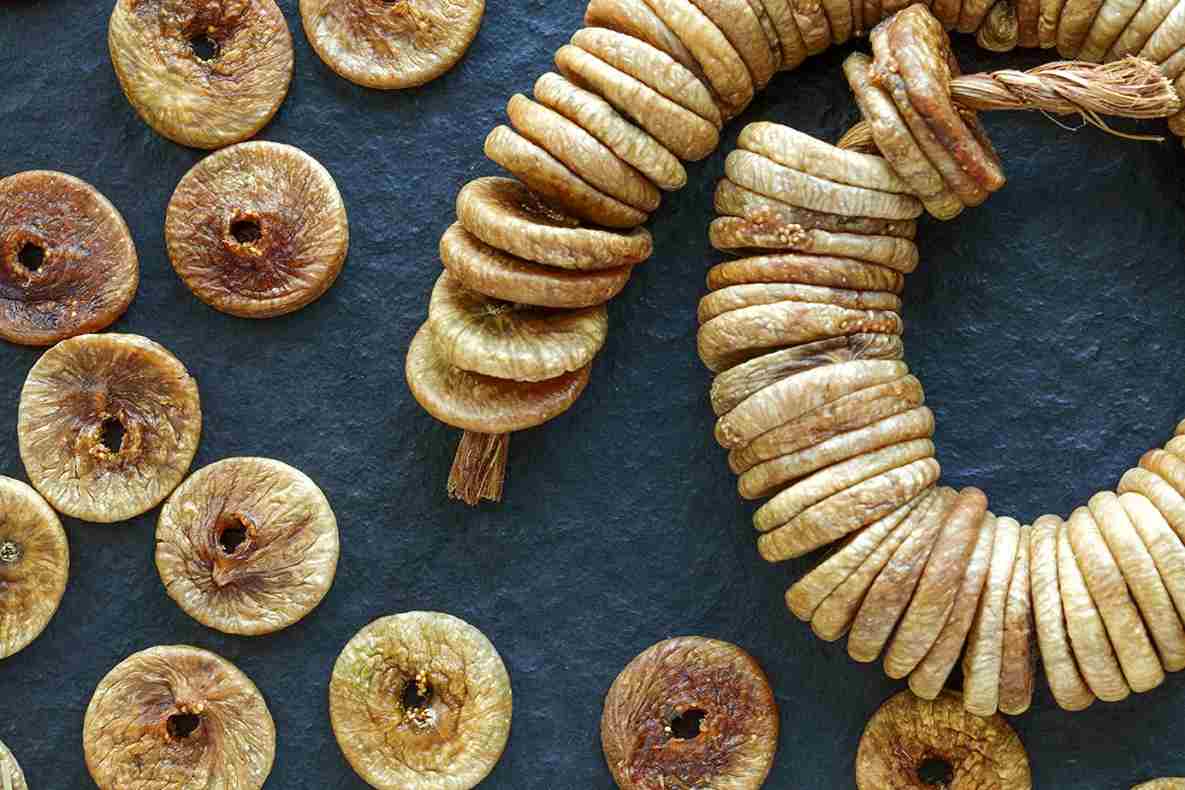Do you know that dried figs are tasty and bring along some amazing health benefits? If you want to help your digestion, improve heart health, or keep your bones strong, dried figs can be of great help. One serving of dried figs is full of fiber, vitamins, and minerals.
Let’s see why these small fruits should be part of your daily diet.
What is in dried figs?
Dried figs are small bundles of healthy nutrients. High in fiber, calcium, potassium, and iron. Dried figs are a great addition to a balanced diet. A serving of about 100 grams has around 249 calories from natural sugars. Other nutrients are magnesium, phosphorus, and vitamin K, which help maintain bone health and heart function.
It is surprising to know how these nutrients work together. For instance, fiber helps your digestion (more on that later), while calcium and magnesium keep your bones strong, and potassium acts like a secret weapon for controlling blood pressure. Who knew something so tiny could be so powerful?
Benefits for Digestive Health
Here’s a personal tip: if you feel bloated or slow after a big meal, eat a couple of dried figs. They have a lot of fiber—almost 3 grams in each one—which is great for your stomach. I learnt this after eating too much on a road trip and feeling, well, a bit stuck. A handful of dried figs made me feel light and comfortable again by the next day.
Dried figs are a natural laxative and help relieve constipation and bloating. They feed the good bacteria in the gut, thus maintaining a proper gut microbiome. Honestly, they are my go-to for keeping digestion on track—especially after those holiday feasts!
Heart Health Advantages
Potassium is a game-changer for your heart, and dried figs are bursting with it—over 230 milligrams per fig. This helps regulate blood pressure, which is essential if you’re prone to hypertension. Also, the antioxidants in figs, such as polyphenols and flavonoids, help lower cholesterol. They do this by controlling those bad LDL particles.
When I began eating figs every day, I felt more energetic, and my yearly health check showed better cholesterol levels. They may not solve all problems, but they are a tasty way to lower the chance of heart disease.
Bone Health and Strength
Did you know that 100 grams of dry figs give you almost 16% of your daily calcium needs? This is why they are great for keeping bones strong and preventing problems like osteoporosis. With magnesium and phosphorus also included, you have a group of nutrients that helps improve bone density. Dry figs are extremely useful to me as someone who abhors the idea of having milk.
Immunity Boost
Dry figs are rich in antioxidants like flavonoids and phenols, which help your body fight off infections. The natural compounds also reduce inflammation. I noticed this when my seasonal allergies improved after I added figs to my diet. And here’s an interesting fact: figs also help your immune cells, keeping your defenses strong. It’s like giving your immune system a special ticket to better health!
Weight Management and Energy Boost
Have you ever been extremely tired at 3 PM and wanted to indulge in junk food? Dried figs are here for you. They have few calories but are packed with natural sugars and nutrients, providing quick and long-lasting energy. Also, they contain a lot of fiber, keeping you full longer and helping to control your cravings. I keep a small container of figs at my desk. It is much better to eat two or three of these than to take candy from the office stash.
Skin and Hair Benefits
I never knew dried fruit could be beneficial for the skin, but dried figs contain antioxidants that fight free radicals. This is what gives you a natural glow. They help to keep dry skin and hair moisturized as well.
I’ve even used a DIY face mask with mashed figs and honey—it felt like a mini spa treatment at home! Thanks to vitamins C and E, figs also help reduce signs of aging, like fine lines. Who needs expensive creams when you’ve got figs?
Managing Blood Sugar Levels
This is the thing: figs are sweet but low in glycemic index. This means they do not cause big spikes in sugar. For a member of my family with diabetes, those figs became a good substitute for sugary treats.
Figs’ fiber reduces the rate at which the body absorbs sugar. That’s a smart snack choice for maintaining a stable blood sugar level; eat them in moderation.
Versatile Ways to Add Dry Figs to Your Diet
Figs are very easy to add to your daily routine. Eat them plain, or chop them up and add them to smoothies, salads, or oatmeal. I love making homemade energy bars with figs. They’re chewy, sweet, and great for a quick boost.
If you desire something special, then baking with figs provides the solution. A fig and almond tart or cookies with figs makes a normal meal very memorable.
Precautions and Possible Side Effects
I love figs, but eating too many can upset your stomach. They have a lot of fiber. Moderation is a must. If you have problems with sugar or allergies, then take small amounts at first.
Keep the figs in a sealed container and put them in a cool place. There’s nothing worse than craving a snack, then opening the fridge and finding it empty.
Conclusion
Dried figs are more than a tasty treat. They are a nutritional powerhouse full of health benefits! Dried fruits boost your health in many ways. They improve digestion, support heart health, and strengthen bones.
Want to add dried figs to your diet? Start today and enjoy their natural goodness while reaping their amazing health rewards!







